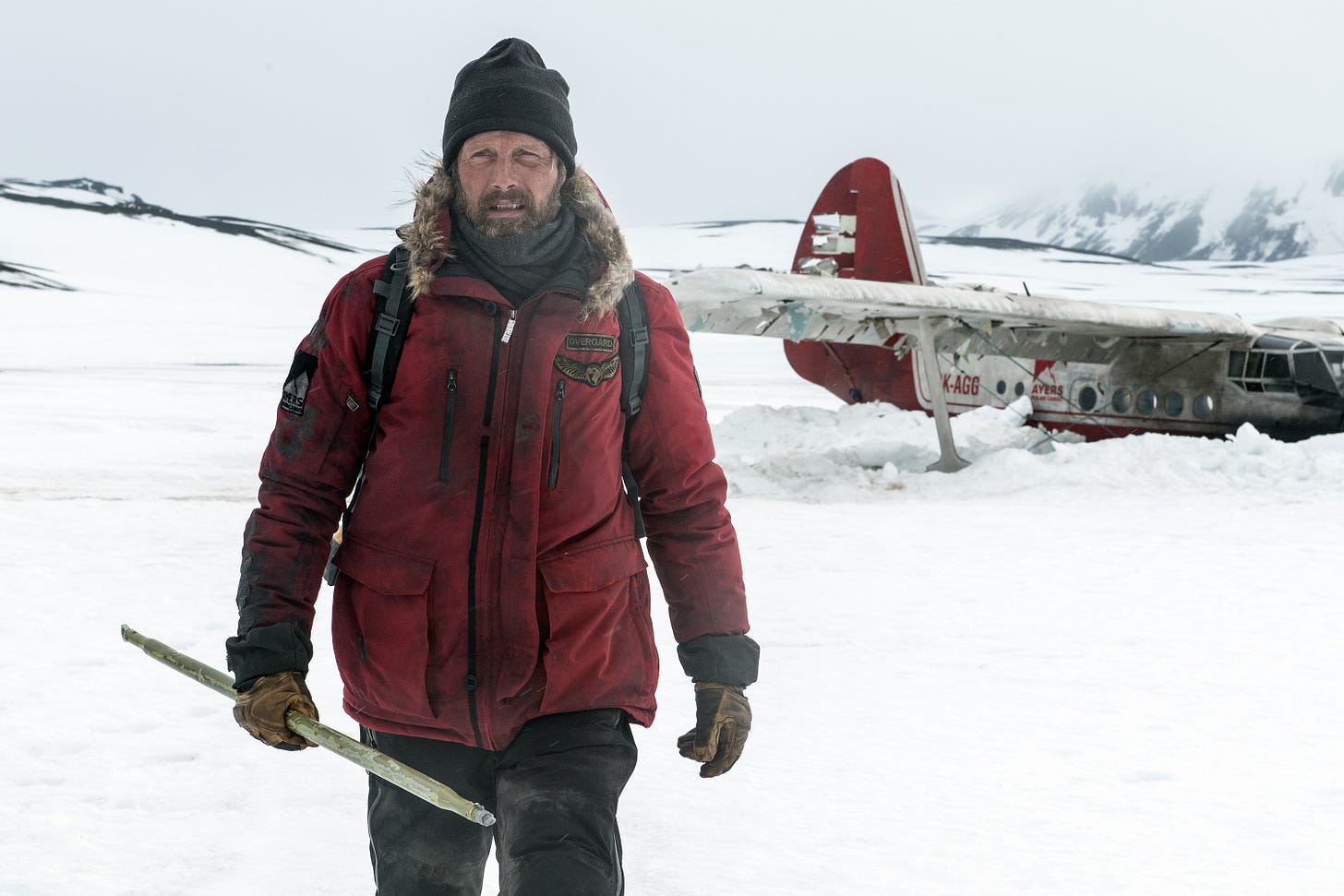Positivity!
And more bad news
Well, after last week’s optimism about writing one good scene per day, I ran into the brick wall that all of you regular, non-superpowered people have run into these past three years. I finally got Covid.


It’s been pretty mild (thanks, vaccines!), but I haven’t had much energy to do much but sit on the couch and watch movies. A lot of movies. So, a very short post today (I am just so tired!) about a couple that are worth your time for the craft of ‘em.
Too Many Movies
Like, is it weird that I’m kind of sick of watching movies? I don’t have it in me to watch anything too taxing, subtitles are hit or miss, so I kind of played Watchlist Roulette, knocking out movies I’d been meaning to see but for some reason hadn’t. Here’s just a sampling:






Yeah, all over the place.
Additionally, I watched a couple that I want to recommend to you to both enjoy and study.
Swiss Army Man
Despite hearing good things, I hadn’t until now gotten around to watching Swiss Army Man, the debut feature from Daniel Scheinert and Daniel Kwan, who went on to make Everything Everywhere All At Once.
There’s lots to say about this movie. It is legitimately great and beautifully shot and acted, and it’s hilariously funny and incredibly big-hearted, very much a nascent version of EEAAO in many ways. (And the music by Manchester Orchestra is stunning).
But the biggest lesson to take from Swiss Army Man, I think, is the thing that I talked about in this December newsletter. This felt like a movie that was scary for the Daniels to make. You can feel the wheels about to come off of this thing at any minute. There are enormous swings in this movie, some of them pulled off by the sheer talent of their actors. But it all works. Even if everything doesn’t always make sense logically, everything works emotionally. And that’s a lot of trust to put into your audience. And the Daniels could not have known for certain that it would 100% work, but they had to trust that they were telling the story that they wanted to tell and that this was the best way to tell it. And you can feel it in the movie, these guys just putting everything into this unique experience, and it’s moving. You’re rooting for them. So even if some aspects don’t work, you’re on board, you’re along for the ride. They risked a lot to make something they believe in.
Take that with you.
And, as Hank did with Manny in the movie, Daniels don’t let any aspect of their premise go unused. They’re telling three stories at once in this movie—a survival film on its surface, but also a buddy comedy and a psychological coming-of-age story. And they use the central metaphor—the titular body—as a means to tell all of those stories.
A good reminder to mine every aspect of your premise. What opportunities are presented by the ideas that you introduce? What possibilities? How far can you bend it before it breaks? And, most importantly, how can you use it to provoke an emotional response?
Arctic
Arctic is a 2018 movie directed by Joe Penna and written by Penna and Ryan Morrison. It stars Mads Mikkelsen as the survivor of a plane crash in the Arctic. It’s a pretty straightforward survival story. I hesitate to even call it a thriller, though parts of it are indeed thrilling. It looks terrific but the whole thing pretty much rests on Mikkelsen’s brilliant performance.
Something I always struggle with, especially in feature scripts, is second-act escalation. It’s hard to come up with new and interesting ways to throw things at your treed protagonist. Because it can’t just be an onslaught of bad things. They have to make choices that lead to situations that cause new problems for themselves.
Arctic is incredibly adept at this. Every single scene finds Mads solving a problem and then running into a new one. When we meet him, he’s already been stranded for some time. He has systems in place that have helped him survive. Backstory is conveyed visually; there’s almost no dialogue in the film.
At the end of the first act, Mads has to choose whether to stay in his relatively safe space or “embark on a deadly trek through the unknown for potential salvation” (per the description on Letterboxd). His decision sets the plot into motion and also tells you everything you need to know about his character. The decision also is the cause of every hardship he faces for the next hour of the film.
I love movies that move like sharks, like this one does. It’s relentless, not in an exhausting way (like, say The Raid, though that’s a version of these plots), but because there is just one story going on here and that story is riveting. What will this person do to survive? A wrong choice could mean death. So every tiny problem, and every decision he has to make to solve it, has enormous stakes.
M3gan
M3gan, which I also watched recently does this so well too. It’s kind of a combination of what I’m talking about with Swiss Army Man and Arctic. M3gan is ridiculously funny and takes enormous swings, but it’s also plotted like… well, a machine.
I suspect there were storylines that were considered and even written along the way that were jettisoned because M3gan just doesn’t need them. Like the previous movie Akela Cooper wrote, Malignant, M3gan is a masterclass in plotting. Worth watching and taking apart to see what makes it tick. If M3gan lets you.
Meet Up News
We had planned to have our paid-subscriber meet-up next week, but I’m going to push the date so I’m well on the other side of this fun plague.
So, please mark your calendars for Thursday, March 23, 7pm. I’ll announce details next week.
Want to join us? And be a part of our monthly Zoom Q&A’s with pro writers too? Upgrade your subscription now. I really appreciate the support, and we’re having lots of fun over here!
In fact, here’s some stuff just for the paid subscribers:






